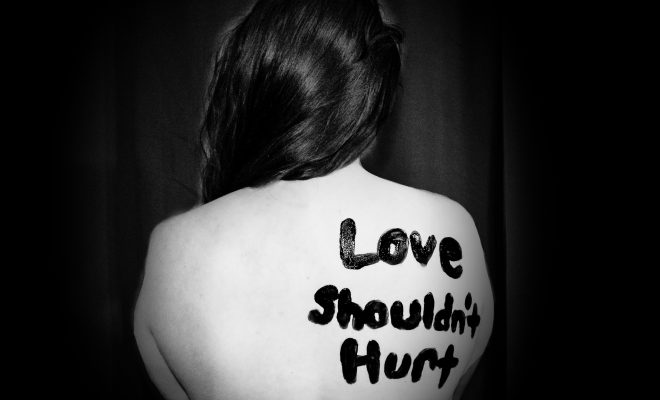
The Difference Between Toxic & Abusive Relationships
The Difference Between Toxic & Abusive Relationships
Nowadays, the terms “toxic” and “abusive” often seem interchangeable in relationships. But, for the people who are dealing with these very specific problems, that isn’t really a fair assessment.
People stay in unhealthy relationships for a variety of reasons. Some are afraid of being alone, while others might struggle with low self-esteem. But, being involved in either a toxic or abusive relationship can be dangerous for your mental, physical, and emotional health.
It’s important to understand the differences between these relationships so you can make the necessary adjustments and changes in your life. The more you recognize some of the most common signs of both toxic and abusive relationships, the easier it will be to realize that you don’t deserve the treatment you may be receiving.
With that in mind, let’s take a clear look at some of the most obvious signs of these relationship issues, and what you can do to avoid them in the future.
Signs of a Toxic Relationship
In many cases, people don’t realize they’re in a toxic relationship because the signs can be subtle, and cause bigger problems over time.
To better understand a toxic relationship, you should have a grasp on what a healthy relationship looks like. A healthy relationship includes respect and understanding. You should feel heard, not judged. You should believe that your partners truly care about how you feel and what you have to say. If that doesn’t sound like your relationship, it could be a sign that your partner doesn’t feel for you the way you think they should. As a result, their feelings and behaviours can cause you to suffer from long-term physical, mental, and emotional damage.
Some of the most common signs of a toxic relationship include:
- A lack of support
- Jealousy
- Resentment
- Controlling behaviours
- Dishonesty
- Patterns of disrespect
- Ignoring your needs
If your partner shows any of those signs, it could be time to end the relationship. Many people stay because they’re hopeful that their partner will change. But, if you’ve addressed any of these issues only to get your feelings cast aside, it’s likely that change won’t occur.
Signs of an Abusive Relationship
Abusive relationships are often easier to see, and they are certainly more widely reported. Roughly 10 million cases of abuse in the U.S. are reported each year, and many of those cases come from intimate partners. This is usually referred to as “domestic violence.” Unfortunately, that’s a small number compared to the number of cases that may actually be occurring. The reality is that domestic violence is the leading cause of injury to women, but only about 25% of physical assaults from intimate partners worldwide get reported to the police.
Some of the most common signs of an abusive relationship include:
- Controlling behaviour
- Possessiveness
- Jealousy
- Constant put-downs
- Threats
- Forced decision-making
- Explosions of anger
- Physical or sexual violence (either towards you, your loved ones, or your pets.)
All of those emotional signs of abuse can easily boil over into physical altercations. There are different degrees of physical abuse, too. But, even if you aren’t being bruised and beaten, you can still be a victim of physical abuse. If your partner pushes you, pins you down, grabs you, or touches you in ways that don’t leave marks but are still painful or unwanted, it is abuse.
While individuals coming forward to share their stories of abuse can make a difference, the issues of domestic violence and abusive relationships need to happen on a systemic level. It should involve family members and support systems, medical professionals, and communities that are all educated enough to promote prevention.
So, if you do find yourself in an abusive relationship, what should you do?
How to Seek Help and Avoid Unhealthy Relationships
The most important thing to do in an abusive relationship is to make sure you’re safe. No one deserves to be emotionally abused. But, if that abuse turns physical, you should leave the situation immediately and go to a safe location.
There are multiple resources for victims of domestic abuse, including the National Domestic Violence Hotline. One phone call can help you to create a safety plan, whether you’re staying in the relationship or preparing to leave. You can also learn more about how others have gone through physical and emotional abuse and come out on the other side. Feeling a bit of hope while you’re in an unhealthy relationship can give you the motivation and strength you need to get away from it.
As important as it is to get out of unhealthy relationships, it’s also important to know how to avoid them. We mentioned earlier that many people stay in abusive and toxic relationships because they feel they have nowhere else to go, or they may have low self-esteem.
Managing your own mental health is one of the best ways to avoid harmful relationships. Practising self-care and making your mental and emotional health a priority can help you to see your own self-worth and value. Find what works for you in terms of boosting your mental health. For some people, getting out into nature can lower your levels of negative thinking and clear your head. For others, talking to a support group or a therapist can help you to better understand where some of those negative thoughts might be coming from, and how you can manage them.
Relationships are about communication, compromise, and care. Unfortunately, both toxic relationships and abusive relationships don’t often have much of any of those important factors.
Understanding the difference between toxic and abusive relationships can help you to know whether you should try and maintain your relationship or whether you should get out immediately. Some traits and behaviours can change if your partner is willing. But, you should never sacrifice your mental or physical well-being in an attempt to “fix” someone else.














